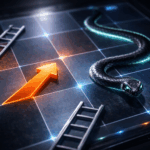Pick a side. Actually, don’t

Pick a side. You have to be on one side, or the other. If you’re not for us, you’re against us. If you’re not with us, you’re with them. Pick a side, and stick to it all your life.
That message is drummed into us soon after we are born, and then reinforced for all of our lives. You have to know your side, always be with your side, and even die for your side.
It is a powerful and compelling message, because it plays to the human’s primal need to belong somewhere. We first belong to our families—they are our protectors and providers when we are little. Then we move on to our ethnic groups—people who look and talk like us. Next, to our religions—people who pray like us. As we grow, we learn to belong to our nations—we become citizens of a grouping with actual geographical boundaries. As we become voters, we get shepherded into political parties. And perhaps we might also belong to a circle of friends—those who get on with one another and have a shared history.
These are the groups we join, almost by default, and the sides we take, almost unthinkingly. Once we’re in, we’re in. These groupings are meant to be lifelong, otherwise we are deemed fickle and disloyal. We must be true to the cause of our side; we must stand up to be counted; we must contribute and participate. In return, we get protection and safety, kinship and community. Nothing wrong with that, surely?
Actually, there is a lot wrong. Most of the strife in this world is not caused by individual fighting individual, but by group fighting group. The gang, the tribe, the faith—these are groupings that lead to both the howling hordes and the organized forces that go to war. In the name of our side, we become ready to fight and kill. The outrages we would not contemplate doing as individuals, we become bizarrely ready for when the group is fuelling the fire. As Nietzsche observed, “In individuals, insanity is rare; but in groups, parties, nations, and epochs it is the rule.”
Millions line up daily to be part of the madness that says we are always right, and the other side is always wrong. They insult, denigrate, or attack people simply because they are on the other side. They engage with heated gusto in the juvenile thinking that claims “our people” are superior or special or favoured.
Tribal allegiances—based on race, religion, politics, even sports—seem to be stronger than ever. I once thought that evolution would move us away from this narrow-mindedness, that humans would come to see that tribalism is but a relic of our primal past, when such groupings were actually necessary because they gave us protection against the elements and against competing aggressors. And yet the instinct is stronger than ever. In this age of unparalleled connection, we remain resolutely divided. Our villages may have morphed into global metropolises, but our minds remain stuck in the tribal fields of the past.
The internet, far from connecting us, seems to be taking us into even more entrenched groupings. The web is filled with hate mobs raining vitriol and threats on those on the other side of the argument, any argument. Barely anyone seems to pause to reflect on the situation, or to weigh up the merits of different points of view. The pitchforks are out, so let’s troll and cancel these others. Even when humans are reluctant, armies of screaming bots are assembled to do the dirty.
A question: is this a natural human phenomenon? Are we just savages by nature, ready to be triggered to shake off our fake cloaks of civilisation and descend into mayhem on any pretext? Or are we being manipulated by the fiendish few who have figured out how easily we can be tricked into vitriol and violence? An observation: go behind every major fight between groups and you will see that the divisions benefit a small clique on either side—those who gain power or make money by having millions of mindless minions to control. Mostly, we are being played.
This is not just virtual violence, mind; the angry bits and bytes of the web can easily turn into bedlam and bodies on the ground. Words fuel anger and outrage, and cause the gullible to gather to fight in the name of their side. Each side believes it is the right side; each believes the other is pure evil and needs to be silenced. All I’ll say is this: by the time your group is asking you to participate in violence against innocents, and even the children of innocents, it has suffered a serious moral derailment.
Don’t get me wrong: there are causes worth joining, outrages worth fighting. But not just because our side says so. That side is often voicing the sinister whispers of manipulators, or the brainless baying of the mob. The need of the hour is for more of us to conduct a conscious decoupling from the fevered factions that rule so many, and to begin to think for ourselves and know when we are being led by the nose into madness.
(Sunday Nation, 21 January 2024)

Buy Sunny Bindra's new book
The X in CX
here »
Popular Posts
- Snakes and Ladders, AKA your lifeJanuary 25, 2026
- How things fall apartFebruary 8, 2026
- Why the third generation might ruin everythingFebruary 15, 2026
- Pretty isn’t the productFebruary 1, 2026
- The man who passed by one markJanuary 18, 2026















